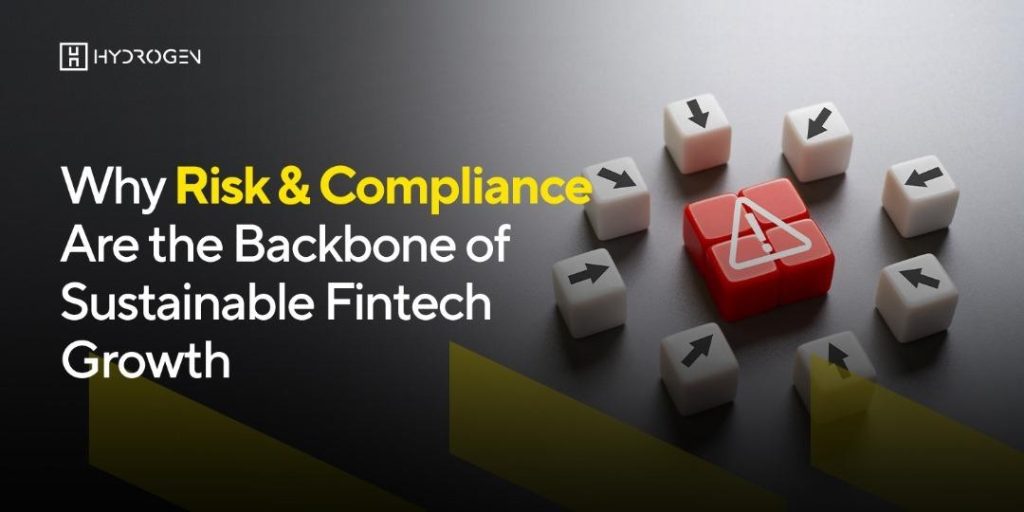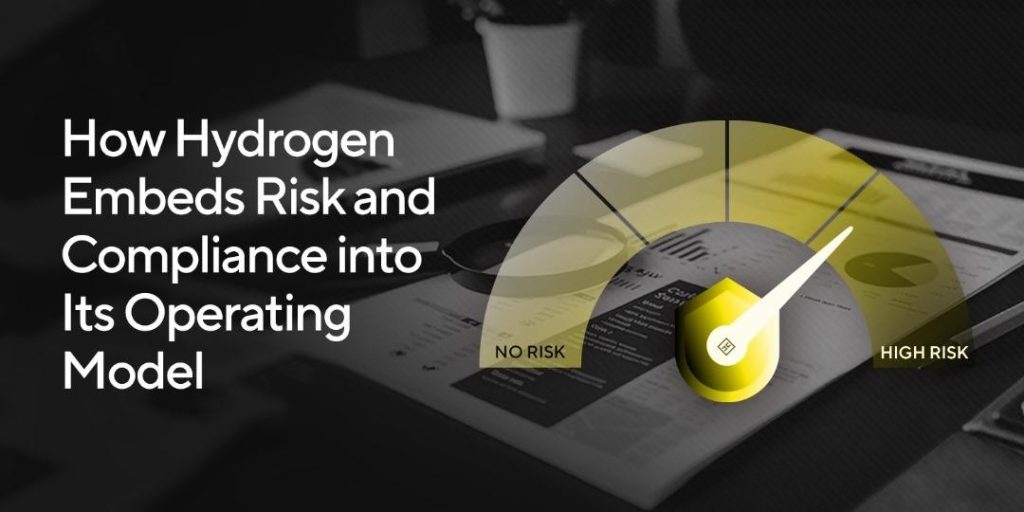Why Risk and Compliance Are the Backbone of Sustainable Fintech Growth

Rethinking Innovation Through a Risk‑First Lens
In the race for scale and speed, fintech companies often spotlight features and transactions. However, true innovation—especially in a market as dynamic and high‑risk as Nigeria—requires more than technological advancement. It requires trust, structure, and the assurance of safety.
At Hydrogen, our passion for innovation is anchored in a strong commitment to risk management and regulatory compliance. These principles are embedded in every decision, system, and service. This philosophy goes beyond merely meeting regulatory expectations; it is about creating long‑term, sustainable value for customers, merchants, and the broader financial ecosystem.
Nigeria’s Fintech Landscape: Growth Amid Complexity
The potential of Nigeria’s digital economy is unmatched on the continent. According to the Nigeria Inter-Bank Settlement System (NIBSS), electronic payment transactions reached ₦1.07 quadrillion in 2024, reflecting a 79.6% increase from ₦600 trillion the year prior. This shows a dramatic shift towards digital financial behavior among individuals and businesses alike.
However, this growth has been accompanied by a rise in threats:
• The Nigerian financial sector suffered ₦52.26 billion in fraud-related losses in 2024, as reported by NIBSS
• Interpol ranks Africa as the fastest-growing region for cybercrime, with Nigeria identified as one of the most targeted jurisdictions (Interpol Africa Cybercrime Report, 2024)
• Regulatory expectations continue to evolve under the Central Bank of Nigeria (CBN) and the Nigeria Data Protection Commission (NDPC), with updated rules around AML/CFT, KYC, and digital privacy (CBN, NDPR)
These trends highlight the need for fintech operators to move beyond compliance for compliance’s sake—and to instead treat it as a core business enabler.

How Hydrogen Embeds Risk and Compliance into Its Operating Model
- Advanced Fraud Detection and Risk Controls
Hydrogen employs sophisticated, high‑assurance systems to enhance its fraud detection, monitoring, and screening capabilities. These measures are designed to function at scale within Nigeria’s complex fintech ecosystem, delivering both security and reliability.
Key applications include:
• Behavioral monitoring: User activity is continuously assessed to detect deviations—such as unusual login locations, device changes, or transaction frequency spikes—that may indicate compromise.
• Real‑time transaction screening: Transactions are evaluated against a range of dynamic risk indicators, including transaction velocity, unusual value thresholds, and inconsistent user patterns.
• Network‑level detection: Our systems analyze transaction flows and account relationships to detect signs of organized fraud, including mule accounts and synthetic identities.
What sets Hydrogen apart is the integration of these high‑end controls across product operations and compliance oversight—ensuring consistency, responsiveness, and resilience throughout the entire payment infrastructure.
- Compliance‑by‑Design in Product Development
At Hydrogen, compliance is not tacked on at the end. It is a core part of our product development life cycle:
• Early‑stage risk review: Before any new feature is scoped or approved, our compliance and risk teams assess it for regulatory exposure and operational risk.
• Embedded compliance controls: Our developers implement safeguards that are mapped to relevant legal frameworks—such as CBN guidelines, PCI‑DSS, and the NDPR.
• Post‑deployment reviews: Once a product is live, periodic control testing and independent audits help ensure it remains compliant as laws and market behaviors change.
This proactive posture means we build with safety in mind from the outset—not as a reaction to incidents or penalties.
- Enterprise‑Wide Risk Ownership
Hydrogen promotes a risk‑aware culture throughout the organization:
• All employees receive onboarding and ongoing training on regulatory obligations, data handling, and internal escalation protocols.
• Compliance and risk officers are embedded in cross‑functional teams, participating directly in product, tech, and operations meetings.
• There are clear lines of accountability for decision‑making, and tools are in place to support transparent reporting of risk concerns or potential breaches.
This ensures that compliance is not confined to one department—it is shared, lived, and prioritized company‑wide.
- Partnership with Regulatory and Industry Bodies
Hydrogen maintains open lines of engagement with:
• The Central Bank of Nigeria (CBN) to stay informed of upcoming policy changes and licensing conditions
• The Nigeria Data Protection Commission (NDPC) to ensure that our privacy practices align with the latest data governance rules
• Other stakeholders, including NIBSS, law firms, fintech associations, and payment service providers
These relationships ensure that our approach is not only reactive but also anticipatory, as we actively monitor the direction of regulation both locally and globally.
- NIBSS Integration: Strengthening National Payment Integrity
As a licensed fintech operator, Hydrogen’s infrastructure is integrated with the NIBSS platform—Nigeria’s central switching system. This integration enables:
• Real‑time settlements via NIBSS Instant Payment (NIP)
• Account validation and identity checks for onboarding and transaction authentication
• Fraud detection support, leveraging data from industry‑wide reports and intelligence shared by NIBSS
This collaboration is critical, given that NIBSS processes billions of naira in daily transactions and sets the operational benchmark for Nigeria’s digital payment ecosystem.
Why This Matters: Building Fintech That Is Built to Last
In today’s environment, customer confidence is as important as technological innovation. The rise in financial fraud, data breaches, and regulatory scrutiny means that growth must be accompanied by responsibility.
Hydrogen’s commitment is clear: to build infrastructure that does not compromise between scale and safety. Our investment in compliance is not simply a defensive move—it is a strategic one.
We believe that every transaction should be trusted. Every product must be auditable. And every partner deserves clarity and accountability.
Compliance as a Strategic Differentiator
Risk and compliance are often viewed as cost centers. At Hydrogen, we see them as value drivers.
As we grow and reach new milestones, our promise remains unchanged: to protect our stakeholders’ interests, uphold the trust placed in us, and create value in a manner that is transparent, secure, and compliant.
Our work proves that innovation can be bold and compliant. That growth can be fast and secure. And that the future of African fintech will be built not just on code—but on governance, trust, and resilience.
Call to Action
Whether you are a community of customers, merchants, partners, investor, regulator, or developer—Hydrogen invites you to help shape the future of digital finance in Africa.
Let us build together: transparently, securely, and responsibly.
 Transacting at the speed of light
Transacting at the speed of light 